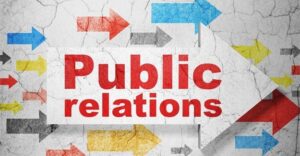Artificial intelligence (AI) is rapidly transforming businesses, offering unprecedented opportunities for efficiency, innovation, and growth. To fully take advantage of the benefits that AI provides businesses, while still avoiding the risks, companies first need to create a comprehensive AI policy.
Understanding business and AI goals
Before drafting the policy, it’s important to define business objectives and identify specific areas where AI can add value. Key questions to consider include the problems that are being adressed with AI. This could be something like enhancing the customer expreience, streamlining operations, or accelerating innovation.
The next thing companies should think about is the capabilities of the AI tools they’ll be using. They should figure out what data the AI will be able to access, whether they have AI expertise in-house or if they’ll be relying on external solutions.
To successfully use AI, these tools require high-quality data. That means businesses should think about the ethical and legal aspects of the data that will be used, as well as the regulatory challenges the company might end up facing.
Core principles for AI use
Establishing a set of guiding principles ensures ethical and responsible AI deployment. AI systems should be unbiased and avoid discriminatory outcomes. Clearly define responsibility for AI decisions and their consequences.
Explain how AI systems work and how decisions are made. Protect user data and comply with privacy regulations. Safeguard AI systems and data from unauthorized access. Ensure AI systems function as intended and do not pose risks.
Defining permissible AI use cases
Clearly outlining the specific areas where AI can be used within an organization may include things like automation, where the company uses AI to automate repetitive tasks to improve efficiency. Another common AI use is data analysis. Utilizing AI for data-driven insights and decision-making.
Many companies rely on AI in their customer service, and they employ AI-powered chatbots or virtual assistants. Some companies use AI in their product development for research, design, and testing. Lastly, AI can be used in risk management to identify and mitigate potential risks.
Data management and governance
AI relies heavily on data, so establishing robust data management practices is crucial. Ensure data accuracy, completeness, and consistency. Protect sensitive data and comply with relevant regulations. Clearly define data ownership and access rights. Implement processes for data collection, storage, and usage.
AI development and deployment guidelines
Clear guidelines for developing and deploying AI systems include defining the stages of AI development, from data collection to deployment. Establish procedures for testing and validating AI models. Implement strategies to identify and address biases in AI systems. Conduct regular risk assessments to identify potential issues. Continuously monitor AI performance and make necessary adjustments.
Human-AI collaboration
Recognizing the importance of humans in the AI ecosystem is vital. Focus on AI as a tool to enhance human capabilities. Provide training on AI concepts and tools. Identify how AI will impact job roles and responsibilities.
AI ethics and compliance
Addressing ethical considerations and legal requirements entails developing guidelines for ethical AI use and ensuring compliance with relevant laws and regulations. It also incorporates clear explanations of AI decisions and conducts regular audits to identify and mitigate biases.




